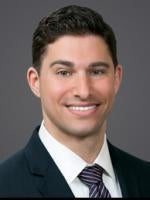On April 3, 2020, the State of New York enacted a long-expected statewide paid sick leave law that will impact all private employers in New York. The law’s leave accrual provisions take effect September 30, 2020; however, employers are not required to provide sick leave to any employee until January 1, 2021.
Under the law, sick leave must be accrued by each employee at a rate of 1 hour per 30 hours worked. The total amount of sick leave for which an employee is eligible in a calendar year, and whether such leave is paid or unpaid, depends on the size of the employer, as follows:
- For an employer with 4 or fewer employees in any calendar year and net income of $1 million or less in the previous tax year, each employee will be entitled to up to 40 hours of unpaid sick leave.
- For employers with 4 or fewer employees in any calendar year and net income greater than $1 million in the previous tax year, each employee will be entitled to up to 40 hours of paid sick leave.
- For employers with between 5 and 99 employees in any calendar year, each employee will be entitled to up to 40 hours of paid sick leave.
- For employers with 100 or more employees in any calendar year, each employee will be entitled to up to 56 hours of paid sick leave.
An employee may use leave in partial-day increments, but an employer may set a minimum increment of not more than four hours. Unused sick leave must be carried over to the next calendar year, but an employer may cap annual usage at 40 hours (for small employers) or 56 hours (for employers with 100 or more employees).
Qualifying reasons for the use of sick leave include:
- “a mental or physical illness, injury or health condition of the employee or a family member, regardless of whether such illness, injury or condition has been diagnosed or requires medical care at the time [that leave is requested]”;
- “the diagnosis, care, or treatment of a mental or physical illness, injury or health condition of, or the need for medical diagnosis of, or preventive care” for the employee or a family member; or
- an absence from work due to any of the following reasons when the employee or a family member has been the victim of domestic violence, a family offense, sexual offense, stalking, or human trafficking:
- “to obtain services from a domestic violence shelter, rape crisis center, or other services program;
- to participate in safety planning, temporarily or permanently relocate, or take other actions to increase the safety of the employee or employee’s family members;
- to meet with an attorney or other social services provider to obtain information and advice on, and prepare for or participate in any criminal or civil proceeding;
- to file a complaint or domestic incident report with law enforcement;
- to meet with a district attorney’s office;
- to enroll children in a new school; or
- to take any other actions necessary to ensure the health or safety of the employee or the employee’s family member or to protect those who associate or work with the employee.”
The law also restricts the information an employer can request from an employee requesting paid sick leave, similar to disclosure restrictions in some local sick leave laws, such as the New York City Safe and Sick Leave Act.
Paid sick leave must be paid at the employee’s regular rate of pay. Upon return to work following leave, an employee must be restored to the same job position “with the same pay and other terms and conditions of employment.” An employer is not required to pay out unused sick leave upon an employee’s “termination, resignation, retirement, or other separation from employment.”
If an employer’s voluntary sick leave policy already meets or exceeds all requirements of the new sick leave statute, the employer is not required to provide any additional leave.
The law permits a unionized employer to negotiate to provide a comparable benefit, in the form of leave, compensation, other employee benefits, or some combination thereof, in lieu of the sick leave required under the law, provided that the collective bargaining agreement refers specifically to the paid sick leave law.
New York employers may want to consider initiating the following measures before the law’s effective date:
- reviewing current sick leave policies and updating as necessary;
- monitoring and reviewing guidance published by the New York State Department of Labor;
- training supervisory and managerial employees, as well as human resources professionals, on the requirements of the law.





 />i
/>i
